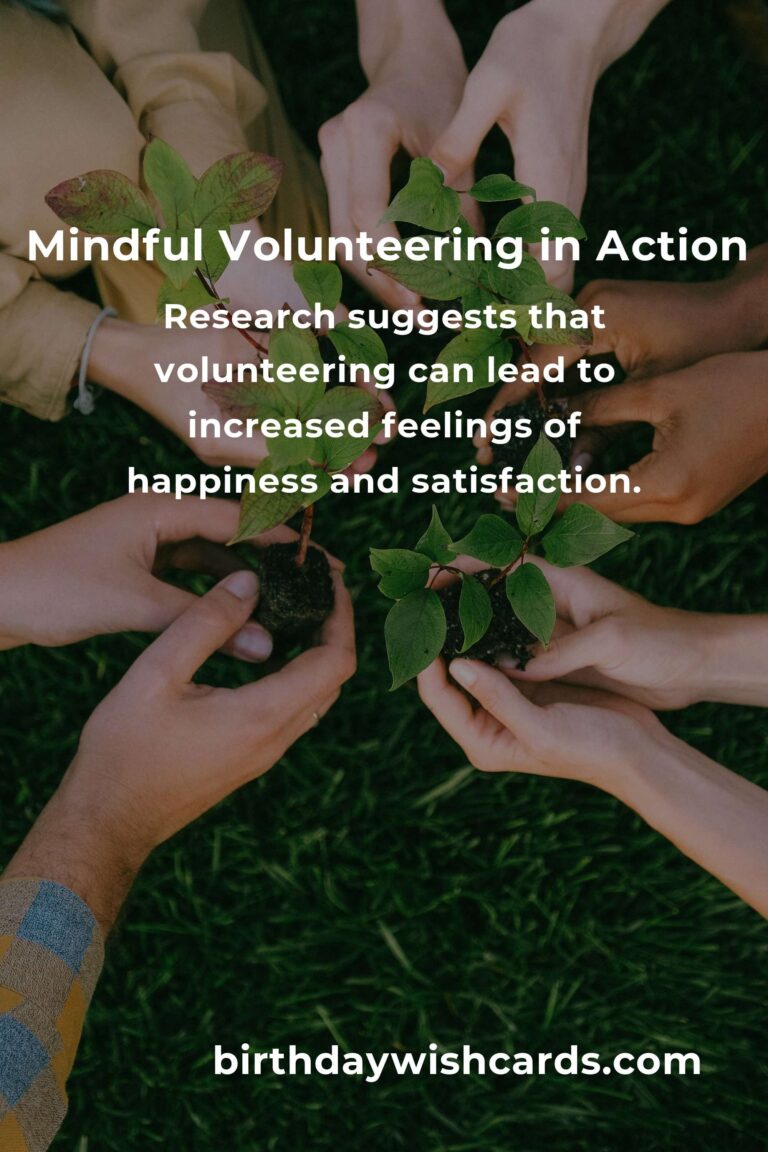
Volunteering is often seen as a selfless act of giving time and effort to help others. However, recent studies have shown that the benefits of volunteering extend beyond the recipients of these acts of kindness. Mindful volunteering, in particular, has emerged as a significant contributor to the mental and physical well-being of the volunteer themselves.
Understanding Mindful Volunteering
Mindful volunteering combines the principles of mindfulness with the act of volunteering. It involves being fully present and engaged in the activity, with a focus on compassion, empathy, and awareness of one’s own emotions and thoughts. This approach not only enhances the impact on those being helped but also enriches the experience for the volunteers.
The Psychological Benefits
Research in psychology suggests that volunteering can lead to increased feelings of happiness and satisfaction. When individuals engage in mindful volunteering, they often experience a stronger sense of purpose and fulfillment. This is attributed to the release of endorphins, also known as the ‘helper’s high’, which are chemicals in the brain that promote feelings of happiness and well-being.
Additionally, mindful volunteering helps reduce stress and anxiety. By focusing on the present moment and the meaningful impact of their actions, volunteers can cultivate a sense of calm and reduce the mental clutter that often leads to stress.
Physical Health Advantages
Beyond psychological benefits, mindful volunteering also offers physical health advantages. Regular engagement in volunteer activities has been linked to lower blood pressure and reduced risk of chronic illnesses. The physical activity involved in many volunteer tasks, combined with the emotional satisfaction, contributes to overall better health outcomes.
Social Connections and Community Engagement
Volunteering fosters social connections, which are crucial for emotional health. Mindful volunteering encourages deeper relationships and a stronger sense of community by promoting empathy and understanding. Volunteers often find themselves part of a supportive network, which can be a source of encouragement and motivation.
Practical Tips for Mindful Volunteering
To fully experience the benefits of mindful volunteering, consider these practical tips:
- Set Intentions: Before volunteering, set clear intentions for what you hope to achieve and how you want to impact others.
- Stay Present: Focus on being fully present during your volunteering activities. Avoid distractions and concentrate on the task at hand.
- Practice Compassion: Approach your volunteer work with empathy and kindness, understanding the impact of your actions on others.
- Reflect on Experiences: After volunteering, take time to reflect on your experiences and the emotions you felt. This can enhance your understanding and appreciation of your role.
In conclusion, mindful volunteering is a powerful tool for personal growth and community betterment. By integrating mindfulness into volunteer activities, individuals can enhance both their own well-being and the lives of those they serve.
Mindful volunteering combines the principles of mindfulness with the act of volunteering. Research suggests that volunteering can lead to increased feelings of happiness and satisfaction. Mindful volunteering helps reduce stress and anxiety. Regular engagement in volunteer activities has been linked to lower blood pressure and reduced risk of chronic illnesses. Volunteering fosters social connections, which are crucial for emotional health.
#MindfulVolunteering #MentalHealth #CommunityEngagement #VolunteerBenefits













